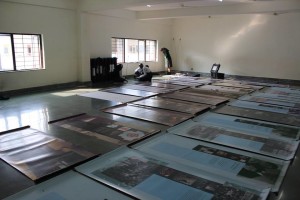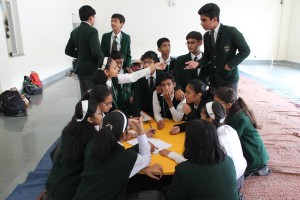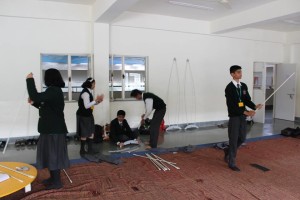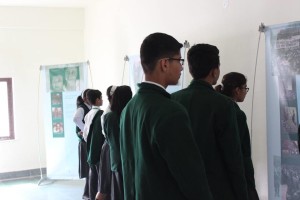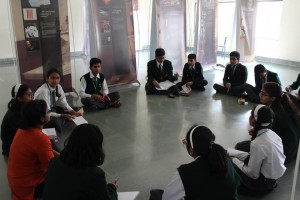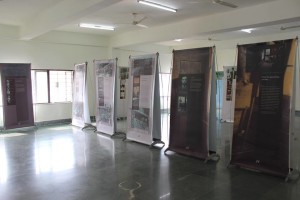The peer guide training and set up of the ‘Anne Frank-A History for Today’ traveling exhibition at Delhi Public School, Nashik was on 17 December 2017.
We were greeted bright and early by a group of 15 students from class 8. We started with a few warm up exercises, followed by zip, zap, boing: a fun energizer activity. We then discussed who Anne Frank was and her diary. Most of the students had not read the book, but were familiar with the story. Following this we moved to the space where the exhibition was going to be set up, where we did the ‘walk in the space’ exercise. This gives the students a sense of the space that they are going to be working with.
After a demonstration of setting up of one of the panels, the students immediately sat down to discuss the way that they would set up the exhibition. They drew diagrams, discussed positioning of windows, natural light and other factors that would be important for the viewing of the exhibition. After two ideas were narrowed down on, the students very democratically decided to vote on which idea they would go with. The process of setting up the exhibition was fairly smooth and we were done in no time. There were some last minute adjustments of placing of the panels and we were ready to start discussing the panels and the peer guiding process.
The students went through each of the panels, making notes as and when necessary. We then discussed each of the panels and how the students felt while going through them. They spoke of pictures and excerpts from the diary that struck them the most. We discussed aspects of peer guiding, particularly what goes into making a good peer guide. After the students went through each of the panels again, we sat down for a discussion on human rights, social exclusion and the relevance of the exhibition today.
One of the peer guides shared his experience on facing exclusion at a temple where Brahmins and Dalits had to eat separately. His brother ( a Brahmin) was not allowed to eat with them because he wasn’t wearing suitable clothes. We discussed this at length, discussing why clothes are so important and how they form a basis for discrimination. One of the students also brought up the discrimination faced by household help. We then discussed reservation [caste based] and the reasons for reservation. What I found very interesting was that this group was young-middle schoolers, but they had many opinions and were unafraid to voice them. By the end of discussion, it seemed hat everyone had contributed in one way or another.
We ended the peer guide training with mock presentations and one on one practices. At the end of the day, quite a few of them told us about how becoming a peer guide not only taught them about Anne Frank and the Holocaust, but also the importance of staying positive even if the situation is very grim. The inauguration of the exhibition was on 18 December 2017.
–Paroma Sengupta

